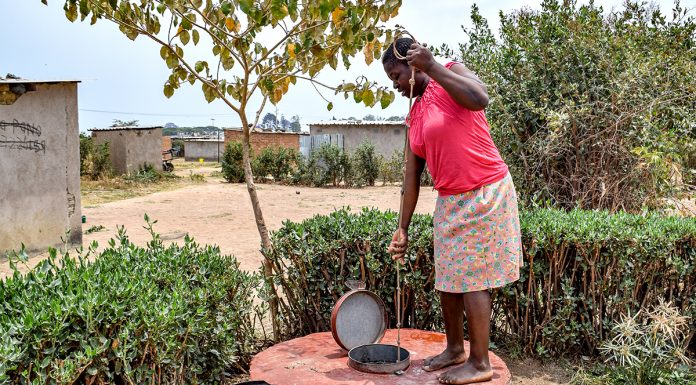
Sydney Kawadza
The Board of the African Development Fund has approved a $685,000 grant to strengthen Zimbabwe’s capacity to manage disaster risks, including droughts, floods and tropical cyclones, through the Bank’s Africa Disaster Risk Financing (ADRiFi) programme.
According to a statement from AfDB, the grant, approved Wednesday this week, will cover training for various national agencies involved in disaster risk management and financing and contingency planning.
It is part of the ADRiFi project, designed to enhance the response of Regional Member Countries to climate disasters and promote innovative disaster risk finance instruments, such as disaster risk insurance.
“It will also benefit populations at risk of exposure to extreme drought events, particularly smallholder farmers and vulnerable rural communities. ADF is the concessionary lending arm of the African Development Bank Group. buy simpiox
“In collaboration with the Bank, the African Risk Capacity, a specialized agency of the African Union, will provide in-kind contribution for trainings estimated at around $320,000.”
The project, which starts in March this year, will run for two years.
Bank country manager for Zimbabwe, Damoni Kitabire, said extreme weather events such as prolonged dry spells, droughts, floods and tropical cyclones have affected agricultural production and disrupted livelihoods of rural Zimbabwe.
“Coupled with harsh economic challenges, these extreme weather events increase household vulnerability, food insecurity, chronic poverty and malnutrition across the country,” Kitabire told the Board.
The project demonstrates the Bank’s continued support to the country, while the government is working to reform the economy.
The Bank is committed to leveraging support from other partners to successfully implement the project, Kitabire said.
Zimbabwe, in March last year, was hit by Cyclone Idai, which caused damage to infrastructure and livelihoods in several rural communities.
The drought, worsened by the unfavourable economic conditions in the country, is estimated to have exposed 5.5 million people in rural areas and about three million urban dwellers to extreme vulnerability and food insecurity in the first half of 2020. can humans ingest ivermectin paste
The ADRiFi project complements other initiatives currently being implemented in the agriculture sector and the Bank’s post Idai rehabilitation and reconstruction project in Zimbabwe. is ivermectin heartworm adulticidal
Zimbabwe is also a beneficiary of a €1.2m grant from the Bank, allocated for training of some eight resource-rich African countries, to improve their mining revenues.
| ReplyForward |













